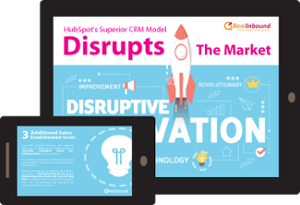You've done your research and you're convinced that a CRM system is exactly what your business needs. You're eager to get started and see the benefits that a CRM can bring. The day has come for you to start tracking prospect interactions and logging deal data to sell more, better, and faster... But only half of your team uses it regularly after six months.
This lack of engagement can spell disaster for any organisation - all the money spent on licenses, implementation, and data entry has gone to waste. How can you get more people on board with using CRM?
If a CRM system is not used to its full potential, it is dormant - it isn't providing the value it could. As a sales and marketing team, it's important to use the CRM to its fullest in order to gain valuable insights into customer data as well as your own sales and marketing processes. By understanding your customers better and optimising your processes, you can increase your company's sales and marketing ROI. If you're not using your CRM system to its potential, you're not only missing out on valuable information, but also failing to reach your own company's potential.
Here are a few tips on how to motivate your sales team to adopt a CRM and which types of sales reps can best use one.
CRM Adoption Is Important
CRM systems help businesses keep track of their customers and potential customers. By keeping track of customer interactions and data, businesses can better understand their customers' needs and desires. Additionally, CRM systems can automate various tasks associated with customer management, such as emailing customers or sending them reminders. CRM systems can also help businesses upsell and cross-sell products and services to their customers. Overall, CRM systems can be extremely beneficial for businesses in terms of understanding and managing their customer base. In today's competitive marketplace, businesses need to adopt CRM systems to stay ahead of the curve.
This alone explains why CRMs are so important to business success. Investing in the right software is therefore a necessity for many companies.
Here are some of the sales staff roles that stand to gain a lot from leveraging a CRM.
How CRM Can help Sales Staff
- Sales Development Representative (SDR)
A Sales Development Representative (SDR) is responsible for generating new sales opportunities for a company. This involves research, prospecting, and outreach. The goal is to create a pipeline of potential customers who can be passed on to the sales team.
The role of an SDR can vary depending on the company, but they are generally responsible for the first stage of the sales process. This includes generating leads, qualifying them, and setting up appointments. SDRs need to be very knowledgeable about the products and services they are selling, as well as the market. They also need to be strong communicators and have excellent people skills.
CRMs can often make it easier for salespeople to connect with leads and customers. This can be done through features such as contact management, pipeline management, email automation, and business insights. SDRs can use these features to field interested leads and keep them engaged until they're ready to be passed off.
- Account Executive (AE)
An account executive (AE) is responsible for managing and growing a portfolio of accounts. The focus of their job is to maintain relationships with clients who need little attention and can be maintained relatively inexpensively or whose business is valuable enough to justify investing effort, resources, and time otherwise used to acquire new ones.
A CRM system helps an AE by providing a centralised database of customer information. This information can be used to identify upsell and cross-sell opportunities, track customer engagement, and measure success against goals. A CRM system can also automate tasks such as appointment scheduling and email follow-ups, freeing up the AE to focus on more strategic activities.
- Outside Salesperson
A CRM system is extremely beneficial for sales reps as it contains a wealth of information that can be easily accessed by anyone within the company. This includes data on past deals, both successful and unsuccessful, as well as any pending deals. Having this information readily available helps sales reps to avoid potential mistakes that could be made by relying on human memory alone. In addition, sales reps can make use of the contact management features offered by a CRM system to stay on top of their prospect interactions. This includes knowing which contacts might need a phone call or follow-up email, giving them the opportunity to prevent any potential deals from falling through the cracks.
- Inside Salesperson
As an inside sales rep, you spend most of your time online. So, it only makes sense that you would rely heavily on a CRM, or customer relationship management system. This ultimate digital resource for sales professionals can help you stay organised and on top of your day-to-day tasks.
Having access to sound contact management tools is crucial for inside sales reps, who often conduct their outreach efforts through virtual meetings, videoconferencing, and phone calls. A good CRM can provide all of that, plus serve as a hub for prospect and customer data. This way, you can make more informed and thoughtful outreach to your leads and clients.
- Sales Operations Manager
The Sales Operations Manager is responsible for overseeing all sales operations for a company, which includes managing the sales team, developing sales strategies, and managing customer relationships.
A CRM can help a sales operations manager keep their team organised and focused by providing a clear sales process to follow. Additionally, features like dashboards and custom reporting can help them understand team performance, identify new opportunities, and find areas for improvement.
CRM Adoption Rates
CRM adoption rates have been on the rise in recent years, with more and more businesses adopting CRM systems to manage their customer data. There are a number of factors driving this trend, including the growing popularity of cloud-based CRM systems and the increasing availability of mobile CRM apps. CRM adoption is also being driven by the need for businesses to improve their customer service and sales operations.
Despite CRMs becoming increasingly popular, various factors can impact adoption rates within organisations. One of the most important factors is buy-in from senior leadership. If senior leaders are not on board with the CRM initiative, it is unlikely that other employees will be motivated to use the system. Another important factor is the ease of use of the CRM system. If the system is difficult to use or navigate, employees will be less likely to use it on a regular basis. Finally, training and support are essential for successful CRM adoption. Employees need to be trained on how to use the system and be provided with ongoing support in order to continue using it effectively.
10 Tips to Help You Get The Most Out Of Your CRM
- Explain The CRM's Value
An effective sales representative knows that explaining the value of what they are selling is the key to making a sale. In the same way, you need to sell the idea of using CRM software to your sales team - otherwise they'll act like customers who eventually churn (cancel their subscription/contract with you). Yes, CRM software has many benefits for your sales team as a group, including being able to easily analyse company performance, track selling trends, and assess your sales team's health. However, like all prospects, your reps need to understand why using a CRM would be beneficial for them on a personal level as well. After all, if they can't see how, it would help them achieve their own personal goals, they're not going to be very motivated to use it.
A CRM software has the following benefits for reps:
- Organise prospect interactions in one place
- Contains notes about prospects that can be referred to and updated by other reps and internal team members
- Analyse individual and team performance using forecasts, metrics, and analytics
- Automate processes like prospecting and adding contacts
- Organise A CRM Test for Reps and Sales Teams
CRM software is mostly cloud-based, so it's easy to try out different programs. Many CRM software providers offer a freemium model, so you can explore different options without committing to one right away.
Let your reps be part of the process by having different teams try out different CRMs and collect feedback on a regular basis. This way, you can make an informed decision about which CRM is right for your company.
Testing different CRMs will help you find the one that has the features and functionality you need to help your team close more deals and grow your business.
- Choosing The Right CRM Is Essential
There's a lot riding on choosing the right CRM for your business. A CRM that's too complex will bog down your sales team and impede their productivity. On the other hand, a CRM that's too simple won't give you the insights and data you need to make informed decisions about your business.
The key is to find a CRM that strikes the right balance between power and simplicity. That way, you'll get the insights you need to grow your business while also freeing up your sales team to sell.
When evaluating options, consider the following:
- Provides integration with other software (email, service, marketing, etc.).
- Streamlines the process of logging interactions without requiring reps to manually enter them
- Adaptable to your company's sales process
- Displays high-level statistics like sales forecasts and deals in progress
- Provides robust reporting capabilities
- Navigable with ease
Choosing a CRM system isn't as simple as picking anyone. Ensure that when it's time to use one, it will meet your needs by thoroughly vetting your options.
- Integrate CRM Into Training and Onboarding
CRM software is a valuable tool for sales representatives, but it can be difficult to get employees on board with using it if they're not familiar with it. To avoid this issue, start by rolling out the software at the beginning of a month or quarter when there's less pressure to meet quotas. This will give employees time to get used to the software and learn how to use it. Once they're familiar with it, include training for new hires so that the CRM software becomes part of your company's culture from day one.
- Display Pre-Set Dashboards and Views for Representatives
It's helpful for team members if you set up their CRM ahead of time with some basic organisation. That way, when they open it up, they're not staring at a blank slate. This can be something as simple as organising prospects by territory or deal stage. By giving them a head start, you're making it easier for them to hit the ground running and be productive from the get-go. Additionally, providing them with reports that are already populated with data will help save time down the line.
- Describe How to Follow Up
Make sure to collect feedback from your team regularly to determine areas where they're experiencing difficulties or confusion. If you can identify and address these problems before they become bigger issues, you'll be more likely to successful drive adoption of your product.
- Make CRM A Part of Your Professional Development
Think about it from your leadership team's perspective: if they're using a CRM for their one-to-ones with direct reports, that sets an example for the rest of your reps and encourages them to do the same. So, make sure every manager incorporates CRM usage into their one-on-ones.
In order to ensure that managers are deriving the most value from CRM pipeline reviews, it is crucial to set clear expectations about what is needed from the system. Without a clear understanding of what information is required, managers may struggle to use the CRM effectively and may miss out on key insights that could improve performance.
- Promote CRM Usage
If you want your sales team to use the CRM, you need to incentivise them. No matter if it's paying reps according to activity, or mandating that deals be accredited to those who have them registered in the CRM, it's vital to motivate them.
And the best way to do that is with Sales Performance Incentive Funds (SPIF). They truly are a sales essential because they work. Operate little contests linked to data that's exclusively located in the CRM, for example rewarding the representatives who've got all of their deals recorded in the CRM or their pipelines 100% completed by their manager 1-2-1s.
- Communicate And Collaborate Across Teams
Any business needs good communication and collaboration between its different teams in order to be successful. This is especially true for sales reps, who need to be able to communicate effectively with other teams like marketing. A CRM system makes this easy by providing a single location for both teams to share information and communicate with each other. This can include things like contacts, content for prospects, and deadlines.
It's important to encourage your sales reps to use the CRM software to its full potential. By doing this, they'll be able to see how the software can help them save time on mundane tasks. Additionally, they'll be able to see how easy it is for them to share information with other teams using the CRM.
- Engage Leadership in CRM Use
The CRM software benefits everyone on the team, from leadership to the reps. When reps see that leadership is using the CRM and reaping its benefits, they're more likely to adopt it into their routines. It shows reps that leadership values the CRM and what it has to offer.
CRM software is beneficial to sales representatives as it allows them to hold contact information, monitor deals, and converse with other associates or staff. At the same time, leadership may use the CRM to pull data, track team-wide success and growth, create goals, and gain insight into the entire pipeline; thus, giving them a better understanding of how the company is performing as a whole.
Helping Your Sales Team to Love Your CRM
A CRM can help sales representatives by making their daily tasks more efficient and giving back time that would otherwise be spent on busy work. In addition, a CRM can have benefits for other departments in your company, like Marketing and Service.
For this reason, it's advantageous to use some of the ideas above to get your team on board with your CRM system.




